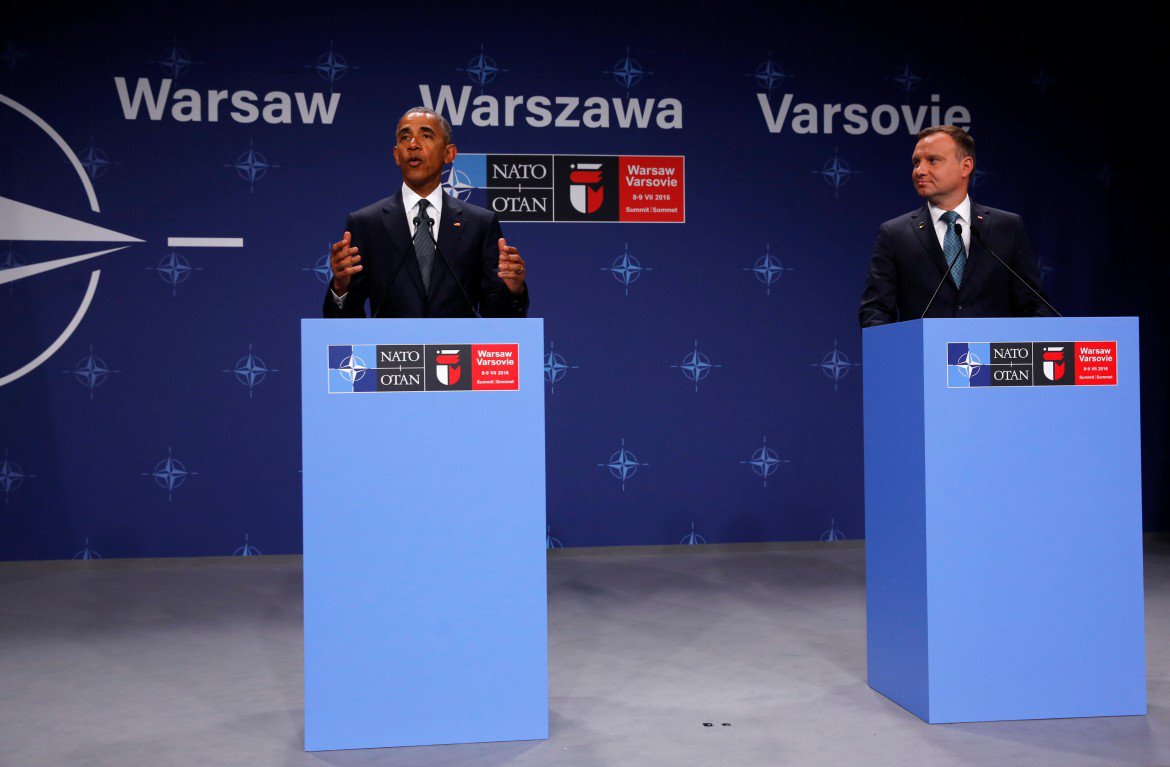Poland
NATO confirms its ‘push east’ agenda
The alliance will send 10,000 troops to the eastern border as members grow wary of Russia.

The first day of the NATO summit in Warsaw opened Friday with the signing of a joint declaration between Brussels and the Atlantic Alliance. It is a broad agreement, focused on seven urgent points: prevention of hybrid threats, maritime security, cyber defense, military interoperability, strengthening of the defense industry in the old continent, exercises, coordination and increased resilience of the civil infrastructure of European countries.
Leaders have shown firmness in dealing with one of the unexpected themes of the summit. Whoever thought Brexit could unsettle the agenda has had to think again. London confirmed that it would set an example to other countries with a commitment to allocate at least 2 percent of its GDP to military spending. In an interview with the conservative daily “Rzeczpospolita,” Polish President Andrzej Duda said that Brexit could have positive implications on the U.K.’s contribution to NATO: “I believe that the exit from the E.U. could push London to a greater commitment in other international organizations,” said the Polish head of the state, Andrzej Duda.
Friday, on the morning before the opening of the summit, the Polish president met behind closed doors with his U.S. counterpart Barack Obama. A bilateral meeting between the two leaders in which the American president did not spare a jab at Duda on the constitutional crisis in progress in Warsaw: “I have the utmost respect for the national sovereignty of Poland. I also understand that the parliament is working on a solution, but it is necessary to do more,” Obama said after the meeting with Duda. Two days ago, the Sejm, the lower house of the Polish Parliament, approved in record time a new “reparation” reform of the Constitutional Court in light of the recommendations from the Venice Commission.
The idea that Moscow could represent an “existential threat to the West” — as expressed in February by the Supreme Commander in NATO forces, Philip Breedlove, in an article published by the magazine Foreign Affairs — is the big glue that holds together the 28 country Alliance. The Kremlin urges the Alliance to common sense while waiting for an upcoming NATO Council-Russia summit. Meanwhile, Putin remains vigilant.
Friday morning, Polish Foreign Minister Witold Waszczykowski reiterated the adoption of the “open door policy” at all costs, regardless of Russia’s sphere of influence: “We are surprised by some changes going on in Minsk in recent times. We want Poland to perform mediation activity to intensify the cooperation between Belarus and NATO.” A statement that might sound like yet another provocation by the West at Moscow. No surprise about NATO’s plan to “push to the east.”
The sides confirmed the deployment of four battalions of 10,000 soldiers. They will be on a rotating schedule among Poland, Lithuania, Latvia and Estonia. Their command will be assigned to the United States, Germany, Canada and the United Kingdom, respectively. The locations where the new brigades will be stationed are not known yet. Poland would like it to be in the Suwalki region to ensure a rapid response to the east in the event of a military crisis. The Suwalki district is right on the border with Belarus and the Russian enclave of Kaliningrad, in an area that is likely to become one of the most militarized regions of the Eurasian continent.
The priority of the Warsaw summit is Europe. Friday, the NATO Deputy General Secretary for Operations, Patrick Turner, confirmed that Operation Resolute Support, providing training to the Afghan army and other armed forces will continue to be financed and managed by NATO until 2020. “In the coming years, we expect that the country’s economic growth will push Kabul to become progressively responsible for all costs related to its national security,” said Turner, excluding at the same time any increase of the Alliance’s military leadership in the Middle East.
Saturday the participants of the counter-summit organized by the international network “No to war — no to NATO” gathered for a protest march that started near the Charles De Gaulle roundabout. At the same time, Mateusz Kijowski, leader of the Committee for the Defence of Democracy, organized an anti-war rally in a square downtown, which was named for the occasion “Martin Luther King Square.”
Originally published at http://ilmanifesto.info/la-nato-conferma-la-spinta-a-est/ on 2016-07-09
